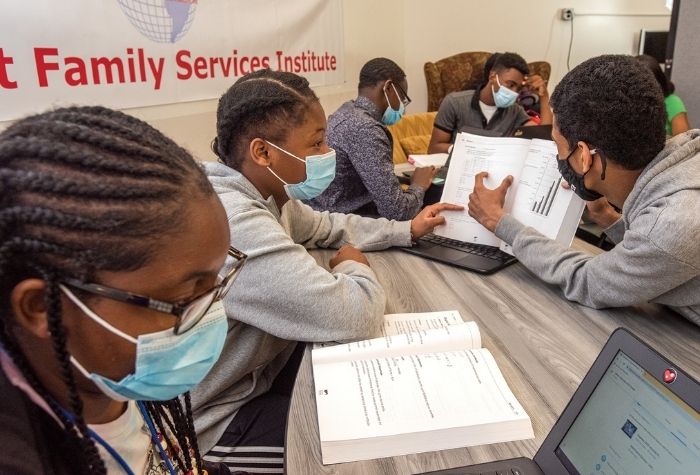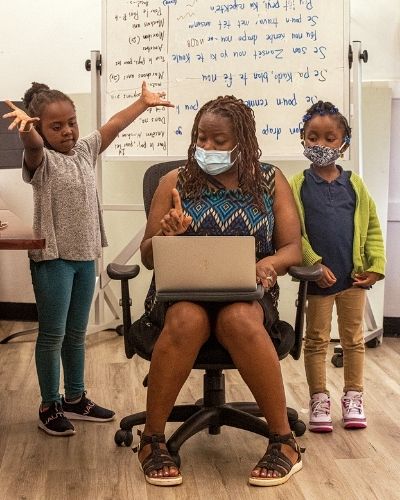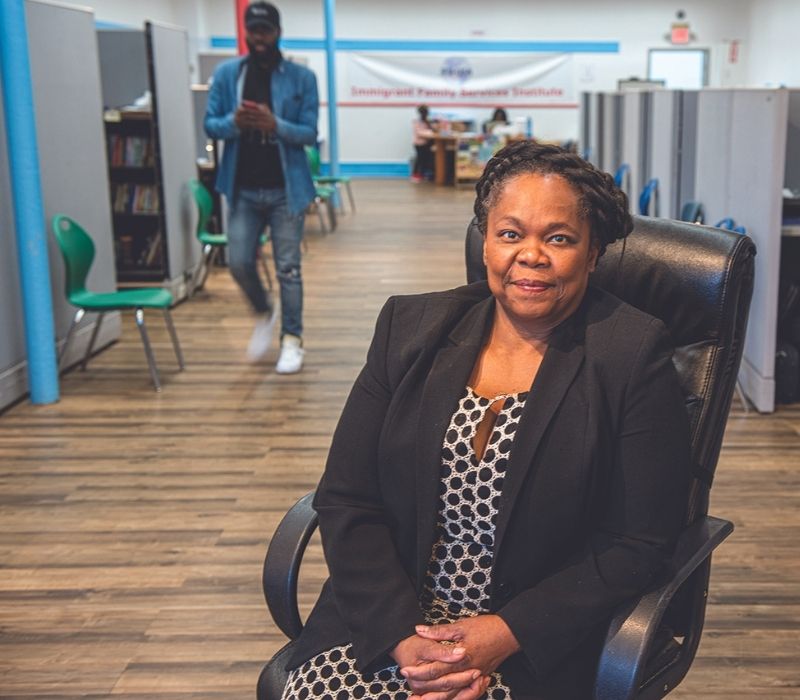Surviving COVID in Mattapan's "Heart of Haiti"
TBF News Summer 2021
For most travelers, it takes about four hours to fly from Haiti to Boston, but for many Haitian immigrants, the journey takes far longer and can be grueling.
“We had one family that had to stop at 30 different places before arriving in Boston,” says Dr. Geralde Gabeau, Founder and Executive Director of Immigrant Family Services Institute (IFSI). “They go to Brazil, they go to Chile, and finally to Mexico, and once they get to the U.S., there are so many other stops that they have to make before coming here.”
Mattapan has the largest Haitian population in Massachusetts, and more families are arriving every week. IFSI works to expedite their successful integration into the social and economic fabric of Boston, with an emphasis on providing academic support and enrichment services to youth.
“They’re leaving Haiti because they can’t support themselves there,” explains Gabeau. “That’s the sadness. You would think that after spending so much time trying to get here, they would be welcomed, they would be valued - they would find a better life. Instead, they move from place to place and sometimes they don’t know where their next meal is coming from. So, it is very hard.”
The pandemic only made things harder. Haitian immigrants were among the first to lose their jobs and then their homes, with no government support to soften the blow.
“COVID-19 was really a mirror that showed us the inequity and injustice that exists,” explains Gabeau. “Before COVID, things were really really bad—and then they just became worse.”
When the pandemic hit, IFSI turned on a dime and adapted its work to assist clients with housing, food and other essentials, with the help of a special $150,000 grant from the Boston Foundation to support communities that have been most directly impacted by COVID-19.
“We had to become everything to everyone,” says Gabeau. “But the good thing was that it brought all of the partners together. To meet the needs, we partnered with Haitian-Americans United, True Alliance Center and Massachusetts Immigrant Collaborative to support families with cash assistance and food distribution. There was a sense of working together. Now we have to find ways to
sustain that.”
“I realized that he hadn’t had a chance to go to school and learn to read, she says. “I was very young and naïve and said to myself, ‘Okay, we have to do something about that.’ So I spoke with my friends and we organized an education program that grew to serve 500 youth.
“When I came here, I thought I would do something else, but the issue of educating Haitian children—who we consider to be our future—became very, very critical to me. So, I did some research about the education system and I decided to start a program serving Haitian children in an after-school setting, but also to educate parents about the need for them to get involved in their children’s education.
“When I completed my doctorate I realized that one of the biggest issues that immigrant families face is the process of integration into a new culture. It’s a very, very long process, because they don’t have enough information to make the right decisions for themselves or for their families. The longer it takes for them to integrate, the more unhappy and confused they are, so their children suffer too, academically and socially and emotionally. That’s why I started Immigrant Family Services Institute. I wanted to work with families so that they can understand the new landscape and make the best decisions for themselves and their children.”



